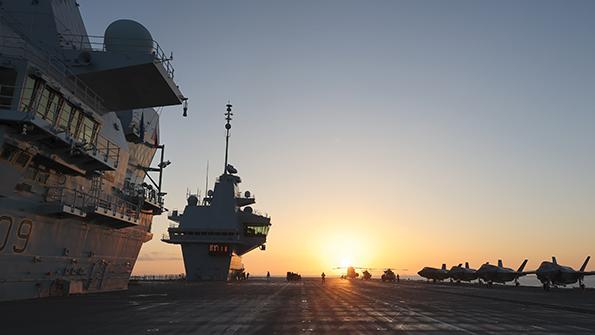
The UK’s Queen Elizabeth-class carriers sailed to the Indo-Pacific in 2021 to signal the country’s pivot to the region, but now London is recasting the military’s focus back on Europe.
Credit: Belinda Alker/Royal Navy
Britain’s new prime minister, Keir Starmer, appears to be stepping back from the Indo-Pacific and refocusing the country’s armed forces for conflict in Europe. Launching a reappraisal of the UK’s defense posture just days into his tenure, following the Labour Party’s landslide victory on July 4...
UK Returning Defense Focus To NATO And Europe is available to both Aviation Week & Space Technology and AWIN subscribers.
Subscribe now to read this content, plus receive critical analysis into emerging trends, technological advancements, operational best practices and continuous updates to policy, requirements and budgets.
Already a subscriber to AW&ST or AWIN? Log in with your existing email and password.
